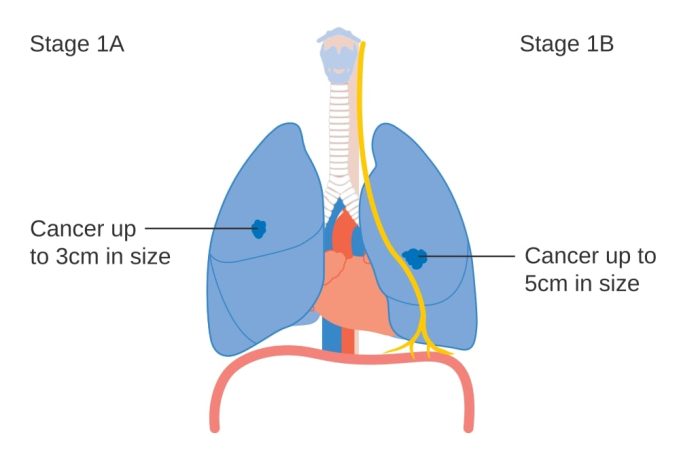Researchers have developed a urine test that can detect lung cancer at an early stage using a novel approach. It uses an injectable protein probe to detect the presence of senescent cells in the lung though interaction with a specific target protein (released by the senescent cells in lung tissue). Accumulation of senescent cells in the tissue is known to be associated with the emergence of cancer. Currently, the test is in final stage of preclinical trial on mice model and should proceed forward for human clinical trial soon. The test can be customised for early detection of other forms of cancer and has potential to improve “early cancer diagnosis” for better patient outcome and prognosis.
Lung cancer often does not present any noticeable symptoms for patients to complaint and seek medical help until it has spread through the lungs or into other parts of the body. It is
usually diagnosed at later stage after it has begun to grow and spread. Investigations tools such as histo-pathology and CT/MRI scanners are used when the patients report to doctors with symptoms which usually happen at later stage. Hence no treatment intervention at an early stage. This means a poor prognosis for many patients. This may change in near future. It may become possible to detect easily lung cancer cases at an early stage using a simple urine test.
Researchers are working towards early detection of lung cancer through a simple urine test based on identification of senescent or old cells.
The senescent cells (also called zombie cells) are not dead cells, but they can’t grow and divide the way normal living cells do. When these cells accumulate at one place, they remodel their environment in such a way that it becomes easy for the cancerous cells to grow and divide uncontrollably. It is known that the affected tissues change before emergence of cancer. The senescent cells release signals that reprogram the tissue and make it perfect for cancer development.
A specific protein released by the senescent cells in lung tissue has been identified. This is a peptide-cleaving protein found in higher concentration in the presence of senescent cells and appear in the early stages of cancer. The test involves detecting this protein in the urine sample of the patient. A positive test means presence of senescent cells in the lung which may give rise to cancer in the lung in due course.
The test uses a protein probe or sensor. When injected in the body, the probe is cleaved into two pieces by the target protein (released by the senescent cells). The smaller part of the probe is excreted in the urine which is made visible in the urine sample through colour change by adding a silver solution. A change in colour of urine sample suggests presence of senescent cells in the lung which is indicative of pathological changes that might lead to cancer.
This protein probe-based urine test detects the first signs of lung cancer before development of disease. It avoids the need for invasive procedures and make early treatment interventions possible for a better patient outcomes and prognosis.
Protein probes can be employed to develop urine tests for other forms of cancer as well.
The test can be customised for early detection of other cancers and has potential to revolutionise “early cancer diagnosis” for better patient outcome and prognosis.
Urine mirrors pathological conditions. A careful analysis of the urine indicates what is happening in the body. Therefore, urine tests are routinely done in medical investigation including for diagnosis of some cancers based on detection of cancerous cells or DNA from tumour cells (as in the case of bladder cancer) or cell-free DNA (cfDNA) or mutated DNA shed by brain tumour cells when they die (as in the case of glioma, a type of brain tumour).
***
References:
- Cancer Research UK. News – World-first urine test for lung cancer picks out ‘zombie’ cells. 6 December 2024
- Cancer Research UK. News – A urine test for bladder cancer: What’s the latest? 16 April 2022.
- Cancer Research UK. News – Scientists developing urine and blood tests to detect brain tumours. 23 July 2021.
- Cancer Research UK. News – Urine test for bladder cancer being developed. 2 July 2021.
- Cancer Research UK. News – Urine tests: detecting cancer in pee. 21 November 2019.
***




































